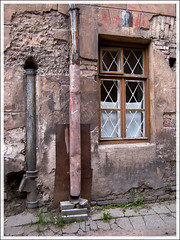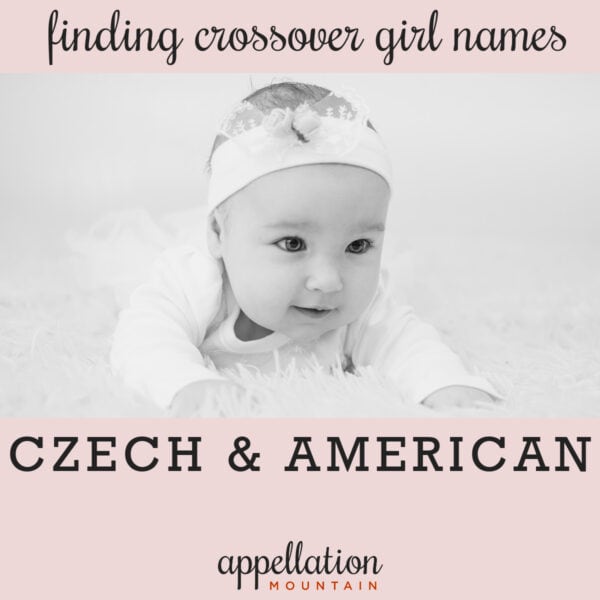It sounds an awful lot like the German word for thank you, but there’s more to this two-syllable name than you might expect.
Thanks to Breanne for suggesting Danka as our Baby Name of the Day.
Doubt that Danka is really a given name? There’s Danka Dresser. Her story is told in Schindler’s List. During the Holocaust, she’s a child who escapes certain death on more than one occasion.
But Danka isn’t her formal name, and her formal name is rather lovely: Danuta. Adding a -k to get a diminutive form is popular in many a language, so Danka is not a surprise.
As for Danuta, her origins are murky. Possibilities include:
- The name Danute is in use for women in Lithuania, where it may be a form of Daniel.
- It is tempting to connect the names to Donata – a feminine form of the saintly Donato, though most of us are more familiar with Donatello (Renaissance master, Ninja Turtle) or Donatella (West Wing character, Versace).
But back to Lithuania. In the 1300s, Gediminas ruled the land. He built the capital city of Vilnius – the picture is of Vilnius’ Old Town section. He used a mix of diplomacy and subterfuge to avoid the encroachment of Christianity. (This makes me think that the name’s origins are probably not related to Donata.) He had at least a dozen children, including daughter Danute. Some records list her name as Danmila or Damila, and she may have been been his granddaughter instead of his daughter.
The confusion seems to come from Elzbieta, one of Gediminas’ daughters who wore the middle name Danute. Elzbieta married a Duke of Masovia – a strategically important part of eastern Poland that served as a gateway between east and west. Gediminas also had a son, Kestusis, who had a daughter named Danute. She, too, married a Masovian noble.
All these centuries later, the name is still in use in Lithuania, Poland, and Hungary. A former Lithuanian prime minister was known as Kazimira Danute Prunskiene. Mrs. Lech Walensa is also a Danuta. Danuta Siedzikowna was a medical orderly and anti-communist organizer while still a teenager in 1940s Poland. Add in athletes, academics, and an actress or two, and the name is no surprise in the Slavic world.
I can’t tell how the names read in Slavic languages – are they historic classics in sparing use, something like Cordelia? Or are they dated names, left to an earlier generation, more like Barbara or Arlene?
More importantly, how would Danute, Danuta, and especially Danka wear in the English-speaking world?
English speakers would likely hear Danka and immediately think of the German phrase danke shõn – thank you very much. Even if German wasn’t your language in high school, the Wayne Newton song is inescapable.
She also sounds something like donkey, which detracts from her appeal.
Add it up, and Danka doesn’t sound like a name in the English-speaking world in 2014. But she’s got a fascinating, surprising story. I’m smitten with Danuta after writing this post.
If you’re after an unconventional name that honors your heritage, Danka might be one for cautious consideration.






My name is Danka. It is diminutive form of Dana, quite usual in Czech Rep. and Slovakia. Pronounced dahn-kah.
Thanks, Danka!
It seems to me that Danka is used as a diminutive for Bogdana and Gordana, of course neither one of those names is particularly common English-speaking world…
Is the pronunciation the same as danke in German? I’m assuming most people would pronounce it dahn-kah, but maybe dayn-kah would work?